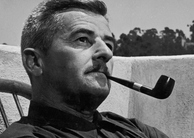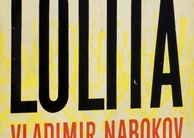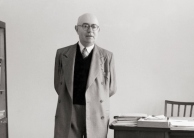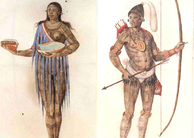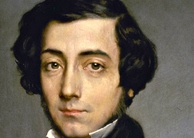|
Articles by Tristan Gans
Found 10 articles
2011, Vol. 3 No. 06
William Carlos Williams’s “The Red Wheelbarrow” contains four two line stanzas in which the first line contains three words and the second contains one word with two syllables; it is also an awesome, awesome poem. With four stanzas... Read Article »
2011, Vol. 3 No. 05
Perusing famous works of literature, one would be hard pressed to find a volume that does not concern itself with the relationship of a creation to its creator. It is a central concern of most religious texts, as well as much of the narrative literature... Read Article »
2011, Vol. 3 No. 05
In Vladimir Nabokov's Lolita, the overriding force of the narrator, Humbert Humbert, is his need to prove himself master of everything: other people, his own desires, fate, and language itself. Time and time again through Lolita we see Humbert&rsquo... Read Article »
2011, Vol. 3 No. 05
Adorno’s case is built on the composers’ treatment of melodic subjects, which he views as ‘pure’ in an intellectual and philosophical sense. He contrasts this to the work of the classical and romantic composers, specifically... Read Article »
2011, Vol. 3 No. 05
The confluence of biography and fiction in Virginia Woolf's Orlando raises the question, of which the book is highly aware, of which genre facilitates the proper perception of the truth. As Woolf writes, “Life, it has been agreed by everyone... Read Article »
2011, Vol. 3 No. 04
Aphra Behn’s 1688 novel Oroonoko leaves many questions unanswered.[1] In one of many seeming contradictions within the text, one wonders how Behn, personally victimized by Charles II and an economic system that sought to disenfranchise her... Read Article »
2011, Vol. 3 No. 04
The most obvious and immediate difference between Alexis de Tocqueville’s Democracy in America and Astolphe de Custine’s Letters from Russia is one of style.[1] Put simply, Tocqueville’s text is an impersonal social-scientific... Read Article »
2011, Vol. 3 No. 04
Alfred Hitchcock’s first three films of the 1960s, Psycho, The Birds, and Marnie, feature alliterative blonde bombshell leads with distinctly avian qualities—Marion Crane, Melanie Daniels, and Margaret “Marnie” Edgar, respectively... Read Article »
2011, Vol. 3 No. 04
In the Broadview Press edition of Sir Gawain and the Green Knight, editor and translator James Winny makes a concerted effort to render the original Middle English text in denotatively correct, non-alliterative modern English. In doing so, he fails... Read Article »
2010, Vol. 2 No. 04
North and South is a novel defined by the resolution of binary conflicts: heroine Margaret Hale is presented with a number of divisions of sympathy, between industrialists and the working class, between conflicting views of Mr. Thornton, and even... Read Article »
Expedited Article Review
Submit an article and get a decision fast.
If you need a fast decision, INQUIRIES Journal offers expedited processing of your submission for a small fee. Depending on the expedited review option you choose, you can receive a decision in as few as 5-days.
In addition to a shorter review period, the fee supports the journal's continued operation and open-access publishing model. Standard submissions are always free. Submit Now » - Submit an Article to Inquiries Journal -
|

